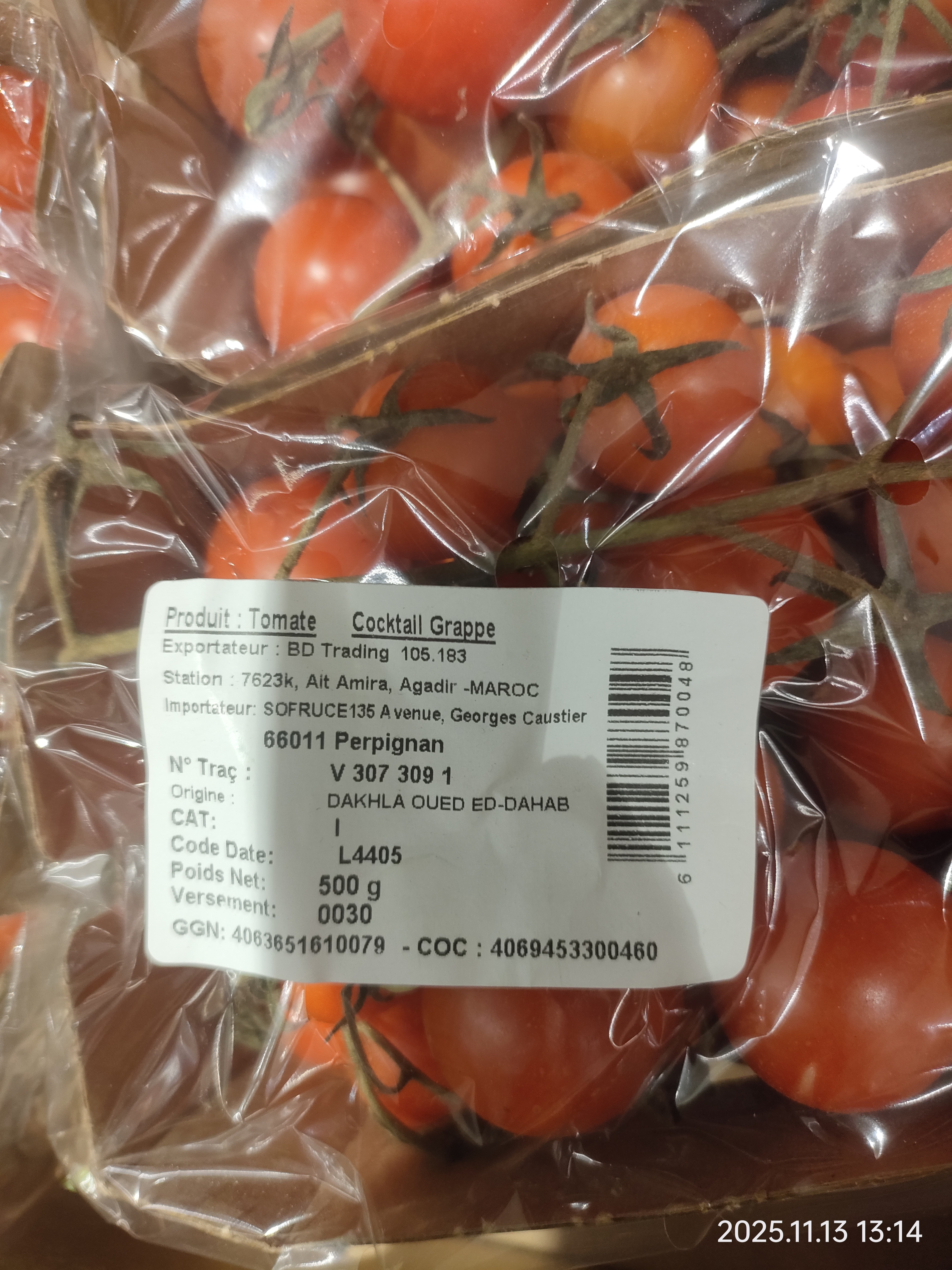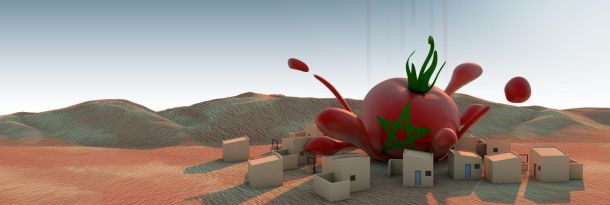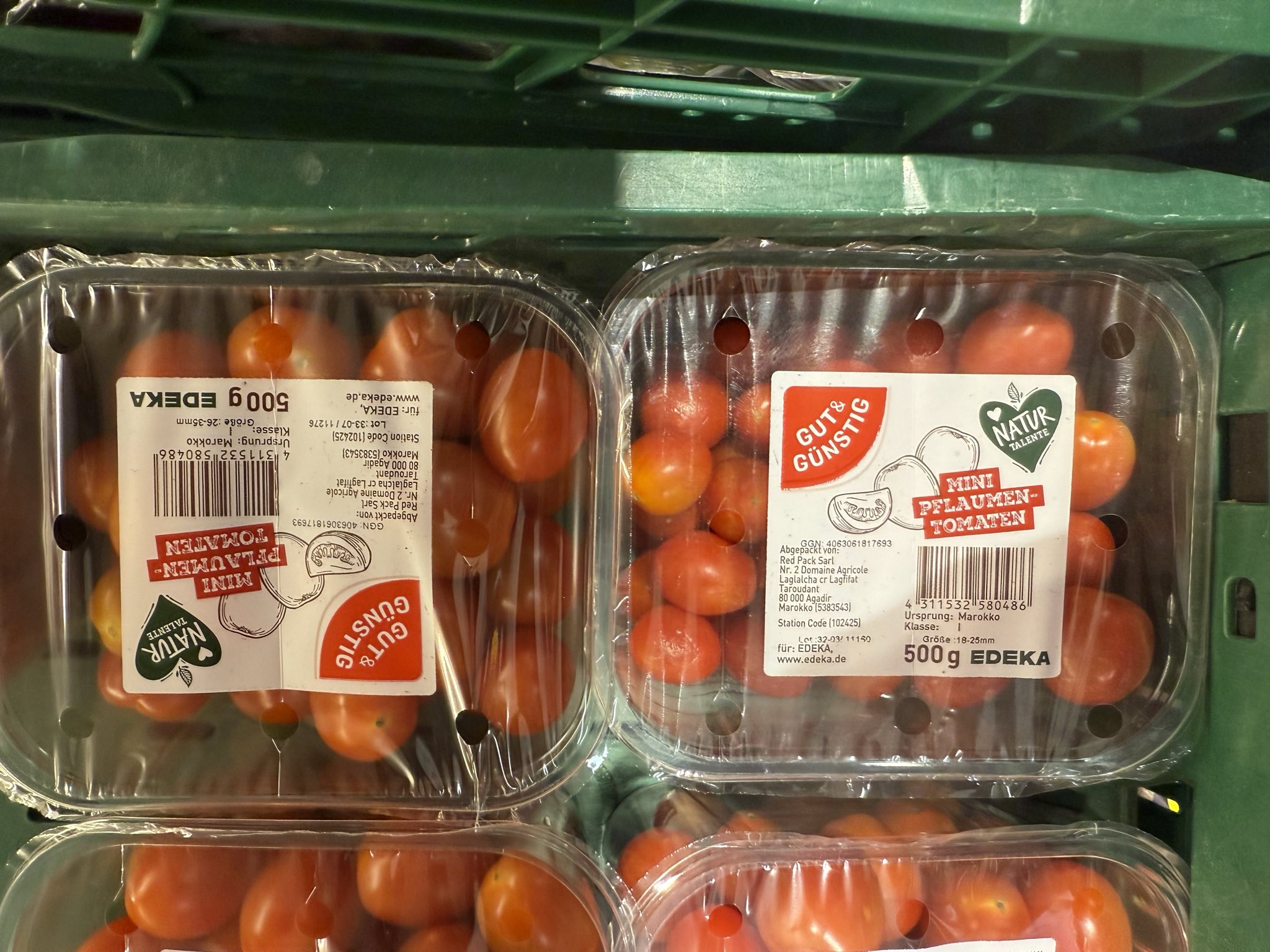
Tomatoes from occupied Western Sahara, certified by GLOBALG.A.P., are being sold in German grocery stores with a false country of origin.
Food products sold in EU shops must carry accurate information about their country of origin. In 2024, the EU’s highest court confirmed that fisheries and agricultural products from Western Sahara cannot be labelled as Moroccan, as the two territories are separate and distinct.
Some grocery chains, however, appear to have been asleep at the wheel. With the help of volunteers across Europe, Western Sahara Resource Watch has identified products on the EU market carrying false country-of-origin labels.
Here are two of them. The photo to the right, taken in August 2025 at an EDEKA store in Chemnitz, Germany, shows a pack of mini plum tomatoes. The one above was taken in Berlin, at EDEKA in Yorckstraße in September 2025.
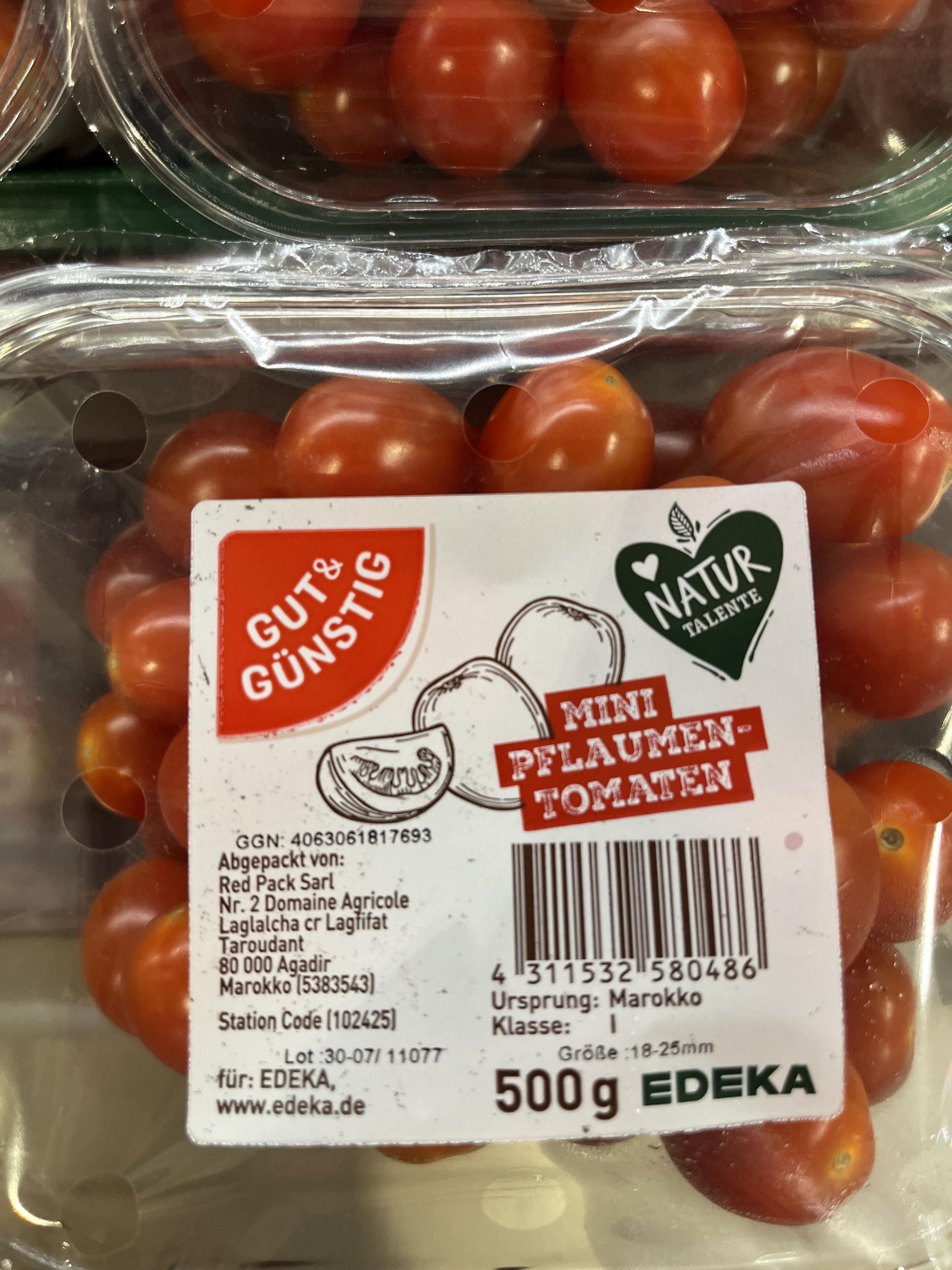
The labels present the products as Moroccan, stating that they were packaged in Agadir. Yet the controversy lies hidden in the discrete GGN code on the labels on the two packages. Through this code system, owned by the German certification scheme GLOBALG.A.P., one can trace the tomatoes back to the Moroccan company Tawarta.
Its production site, with the GGN code 4063061817693, is not located in Morocco at all, but in Dakhla, occupied Western Sahara.
See the GGN database entry for the certificate here.
It remains unclear to WSRW whether the EDEKA mistake originates from the systematic country errors in the GGN registry. GLOBALG.A.P's GGN code scheme is consistently using incorrect county information on all certificates that are issued to Moroccan companies operating in occupied Western Sahara. Each GGN number can be verified in the publicly accessible GGN database.
“As long as GGN codes systematically and incorrectly list locations in Western Sahara as being in Morocco, our advice to EU consumers is to avoid any product carrying a GGN label entirely. The system simply cannot be trusted in terms of country-of-origin information”, stated Tim Sauer of Western Sahara Resource Watch.
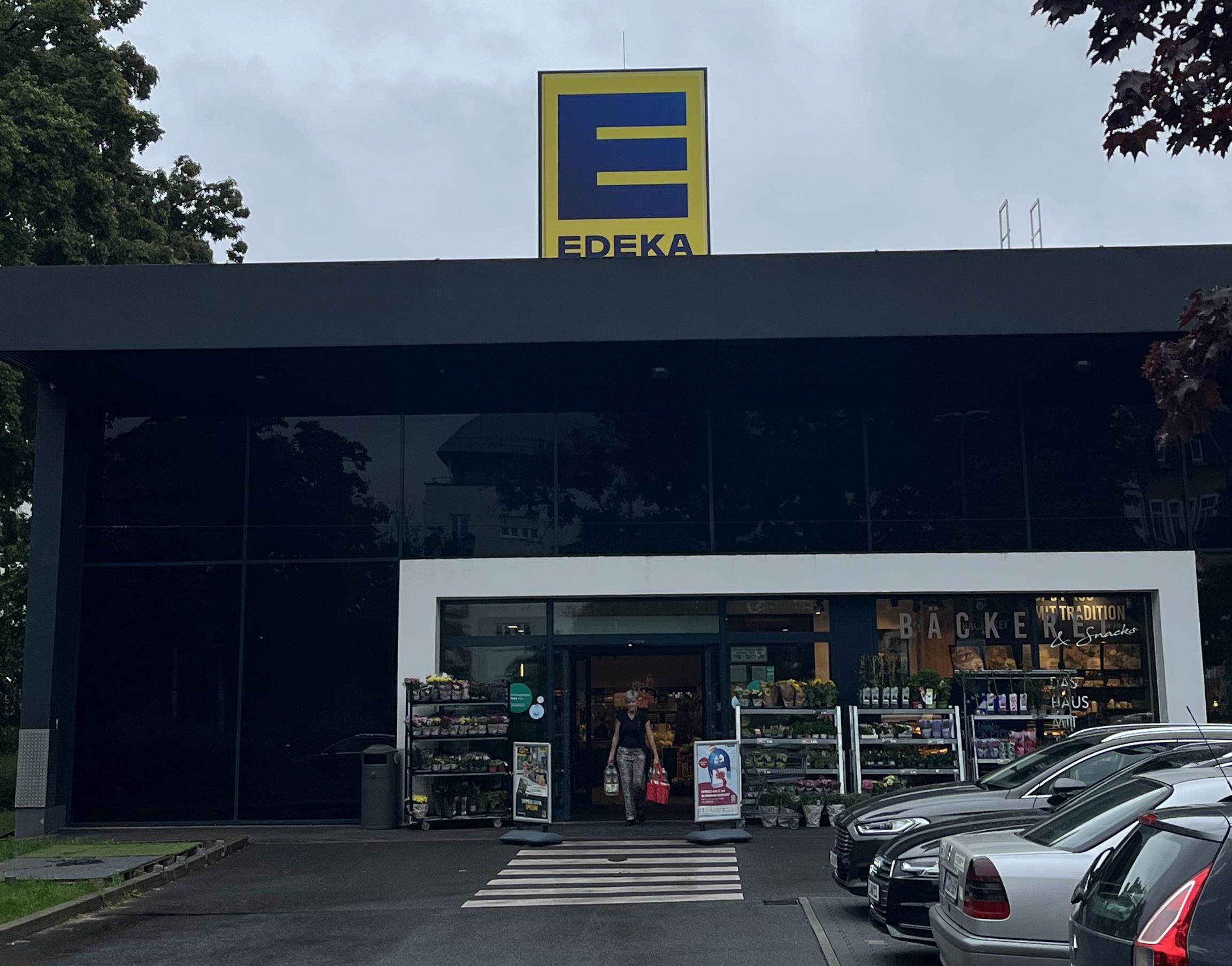
WSRW in a letter sent yesterday asked EDEKA about the significance of the incorrect country information on the GLOBALG.A.P certificate and its impact on the product’s labelling in the shop shelves. WSRW stated that it expects EDEKA to correct the erroneous country information and to comply with the 2024 CJEU ruling on proper labeling for this and similar products. As the owner of the Gut & Günstig brand under which the products are marketed, EDEKA is responsible for correctly labelling the country of origin.
WSRW also asked whether EDEKA, to avoid misleading its consumers, would remove all GGN codes on all products originating from Western Sahara and Morocco, since the associated GLOBALG.A.P. certificates from Western Sahara contain factually incorrect country information that could mislead consumers who wish to avoid supporting foreign occupations.
WSRW reported last week about GLOBALG.A.P.’s controversial practice of certifying Moroccan companies operating in the occupied territory as “responsible” for adhering to Moroccan government legislation.
A Saharawi farmer from Western Sahara, who was forced to flee following the territory’s brutal invasion, described GLOBALG.A.P.’s certification of Moroccan companies on his homeland as “shocking”.
WSRW wrote to GLOBALG.A.P. yesterday, asking whether the organization had informed EDEKA that all its certificates for Western Sahara contain wrong country information.
Another problematic aspect of the mini plum tomatoes from Dakhla in EDEKA’s stores relates to human rights compliance: under its policy, EDEKA requires a so-called GRASP (GLOBALG.A.P. Risk Assessment on Social Practice) as “a minimum requirement for EDEKA procurement.”
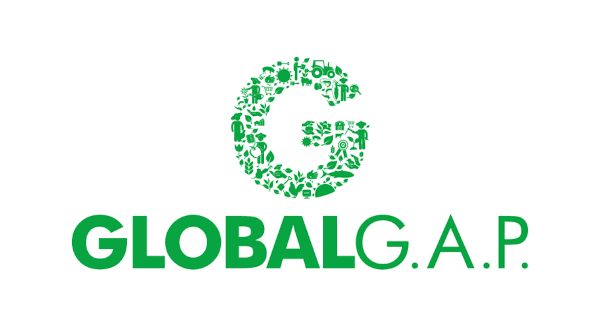
However, how can a GRASP be conducted in an occupied territory? GLOBALG.A.P. has confirmed to WSRW that “no national interpretation guideline for Western Sahara exists”. WSRW finds it unclear how it is technically possible to obtain a GRASP for a territory with no applicable national guideline. The Moroccan agri-sector in Western Sahara is set up in violation of the Saharawi right to self-determination, which is a human right.
EDEKA is one of Germany’s largest supermarket groups, organized as a cooperative network. The group is made up of thousands of independent, self-employed retailers who operate stores under the EDEKA banner. The mini plum tomatoes are sold under EDEKA’s private label, “Gut & Günstig,” which covers a wide range of food and household products available exclusively in stores of EDEKA and the EDEKA-owned Netto Markendiscount. Responsibility for quality assurance and legal compliance for Gut & Günstig products lies with the EDEKA Zentrale in Hamburg.
The certificate of the exporting farm in Western Sahara was audited by the Spanish company ACERTA Certificación, S.L. WSRW wrote ACERTA on 29 December 2024 over this matter. The company responded to WSRW that “the core issue you raise exceeds the capacity of our company to provide an appropriate response. Our entity strictly adheres to the guidelines established by the organizations that set the standards. For this reason, I regret to inform you that we cannot provide a direct response at this time, as we first need to bring this matter to the attention of GLOBALG.A.P. ”
Since you're here....
WSRW’s work is being read and used more than ever. We work totally independently and to a large extent voluntarily. Our work takes time, dedication and diligence. But we do it because we believe it matters – and we hope you do too. We look for more monthly donors to support our work. If you'd like to contribute to our work – 3€, 5€, 8€ monthly… what you can spare – the future of WSRW would be much more secure. You can set up a monthly donation to WSRW quickly here.
EU’s labelling chaos already hitting supermarkets
A packet of cherry tomatoes sold this week in a French supermarket illustrates the confusion triggered by the European Commission’s rushed attempt to adapt EU consumer and trade rules to Morocco’s claims over occupied Western Sahara.
German trade fair should stop promoting Azura, groups say
German and Irish law organisations demand that Messe Berlin ceases to accept the controversial French tomato producer Azura.
First season in Switzerland without occupation tomatoes?
From this winter on, Swiss supermarkets will probably, for the first time, no longer sell tomatoes from occupied Western Sahara.
Transparently unethical: Western Saharan melons are not from Morocco
An example of doing the wrong thing the right way: Swiss supermarket chain Migros still imports from occupied Western Sahara, but is at least honest about it to its customers.
